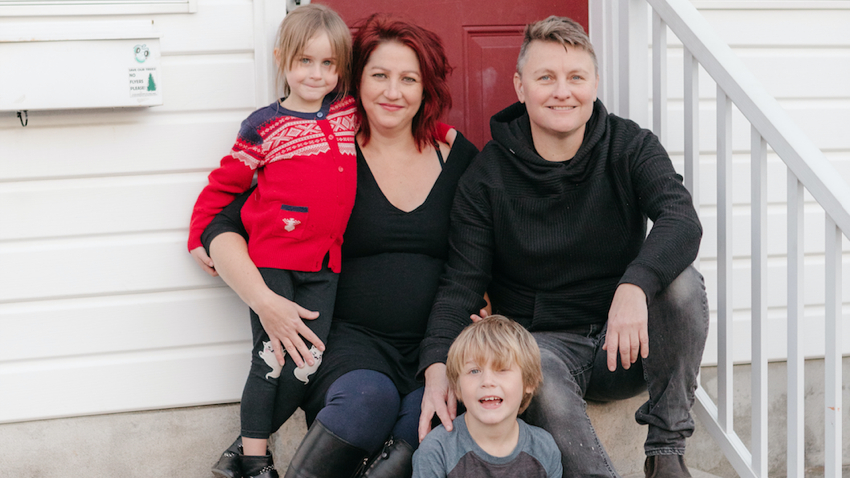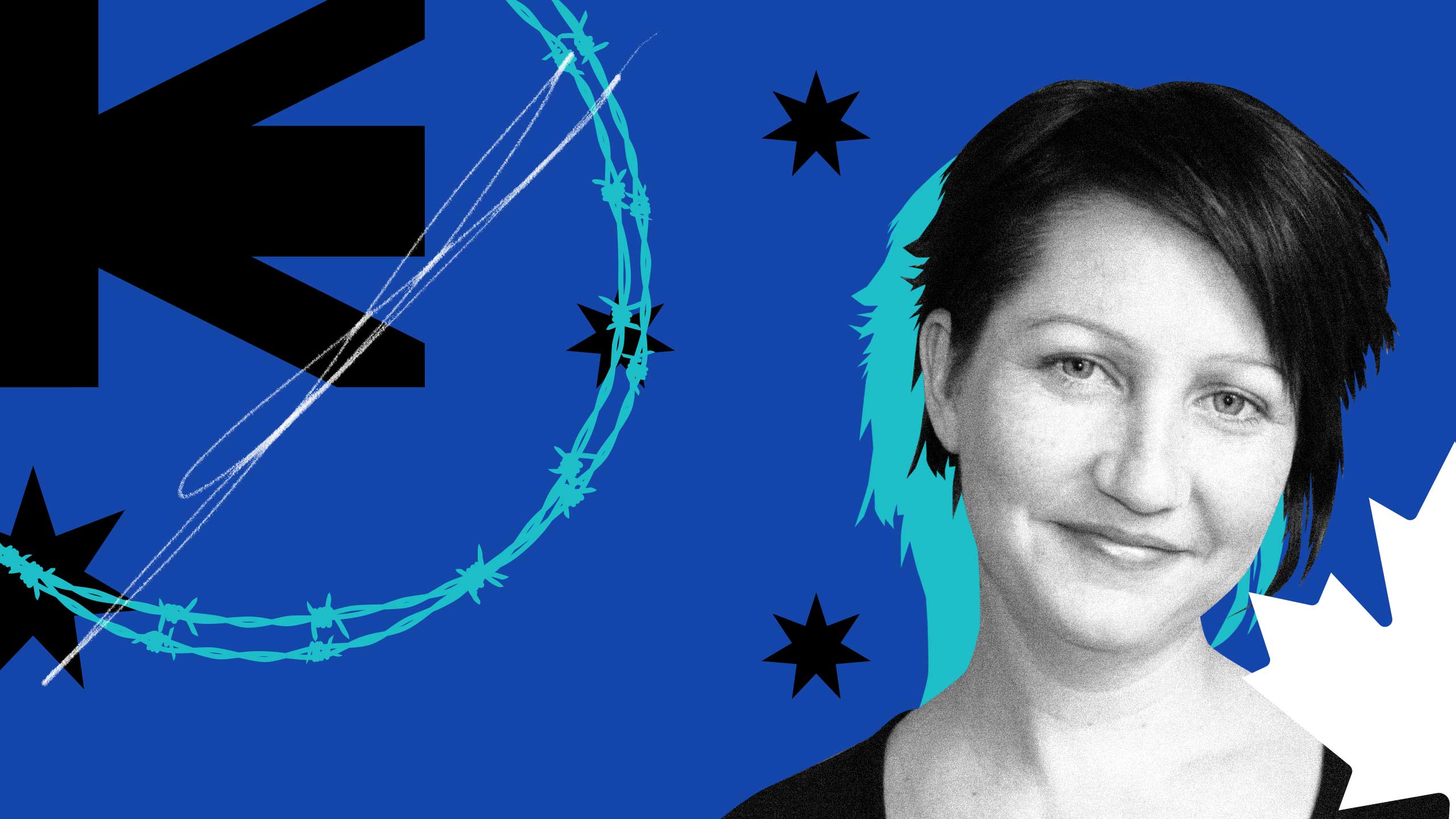Late last year, a gay refugee made headlines in Australia’s queer media circuit. The refugee, known as Ali, fled the Middle East. He was in a secret same-sex relationship, and when it was discovered, he was chased down, beaten and stabbed. Ali came out to his family, who disowned him. Left without a safe home, he fled his native country in search of a better, safer home, and eventually settled on moving to Australia—Ali had family there and thought it would be an easy place for him to settle.
When he arrived in the country, he was immediately put in immigration detention, where he’s remained for eight years. The Australian government has refused to consider his refugee claim, and as a result he’s been left in limbo for nearly a decade. In August, the government again refused his request for a visa, leaving him vulnerable to deportation back to his home country where he would face violence and persecution.
Ali’s story soon began to circulate, and several Australian celebrities banded together to take action. A petition asking the Australian government to free Ali has garnered more than 20,000 signatures, but the circumstances of his case have not changed.
Ali is one of hundreds of refugees stuck in detention by the Australian government. Although it is standard practice in many countries to detain refugees upon entry, the average duration of refugee detention in Australia has been growing. As of August, refugees are detained for an average of 696 days—nearly two years—according to the Refugee Council of Australia. By contrast, in 2012, refugees in Australia were detained for an average of 79 days.
“As Australians, we knew what was going on, and being based in Canada meant we could actually do something about it.”
In Canada, a small group of Australian friends in Toronto wanted to do something about the refugee crisis in their home country. Their project has since ballooned into Ads Up Canada, a not-for-profit organization that seeks to bring refugees caught in the Australian immigration system to Canada.
Following its formation in 2019, Ads Up Canada partnered with the Refugee Council of Australia and MOSAIC, a British Columbia-based refugee organization, to start Operation #NotForgotten, an organized effort to bring refugees to Canada through the country’s Private Sponsorship of Refugees program. The program allows private groups unaffiliated with the government to sponsor a refugee by helping them pay for basic necessities like furniture, clothing and food while supporting them socially and emotionally.
“In no other country do they have a system like this where people can come together to support an identified person privately outside of the government assistance programs,” says Juliet Donald, co-director of Ads Up Canada. “As Australians, we knew what was going on, and being based in Canada meant we could actually do something about it.”

Credit: Courtesy of Juliet Donald
Many of the refugees Ads Up Canada are supporting are queer or trans and have filed refugee claims on the grounds that it is not safe for them to live openly in their home countries. To date, Ads Up Canada has secured sponsorships for nine SOGIE refugees, a technical term for refugees filing a claim on the basis of sexual orientation or gender identity or expression. Donald says the number of LGBTQ2S+ refugees is likely higher, as many don’t want to disclose their sexual orientation or gender identity for fear of further persecution.
“People can apply for refugee status on the basis of other things such as religious persecution or political beliefs,” Donald says. “What we found is that some people apply under those conditions and then later, once we get talking to them a bit more, they mention quietly that they’re also queer. These people have lived a life of absolute fear that even when applying for refugee status they’re afraid to mention who they really are.”
But the pandemic has meant that Ads Up Canada’s work has hardly had the chance to begin. Just as they were getting started with the refugee sponsorship process—which can take years to go through—COVID-19 began spreading worldwide, and immigration hit a standstill. Operation #NotForgotten has processed 250 refugee applications in two years, but none of their sponsorship requests have been fully processed by the Canadian or Australian governments, and the refugees that had been promised safety have been forced to remain in detention.
Alan Han first got involved with Ads Up Canada in 2020. An Australian in Canada, Han and his partner decided they wanted to help sponsor a queer refugee caught in his home country’s immigration system. With Ads Up Canada, Han and his partner got together a group of five sponsors—the legal minimum to participate in Canada’s private sponsorship program— and began the process to sponsor a queer refugee in June 2020.
“For Donald, the knowledge that the refugees will eventually come to Canada is what keeps her and the team going.”
“I’ve always been really disappointed with the way that Australia responds to the plight of refugees, and during the pandemic I thought, ‘We’re in a position now to be able to give back,’” says Han.
He got in touch with Donald and asked if he could specifically support a fellow queer person. Donald connected his group with two brothers, both of whom are refugees currently detained in Australia, one of whom is queer. Plans began to bring them to downtown Toronto, where Han and his partner live.
But the pandemic has continued to stymie the refugee claims process, and the two brothers are stuck in Australian detention. The Canadian government could approve their refugee claims at any moment, and the amount of notice they might get is up in the air. “We could have anywhere from two weeks’ notice to one month or three months,” Han says. “We’re in limbo as much as they are.”
For Donald, the knowledge that the organization’s life-saving work will pay off—that the refugees will eventually come to Canada—is what keeps her and the rest of the Ads Up team going. “I’m sure one day I’ll take a deep breath and be really proud of what was done,” she says. Fundraising remains essential and an enormous amount of work remains to be done, although the reward of the refugees arriving has yet to happen. “It’s really about just maintaining the energy to keep pushing.”


 Why you can trust Xtra
Why you can trust Xtra


